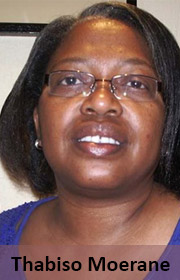 South Africa’s mobile operators argue that so-called over-the-top (OTT) service providers, and especially WhatsApp, are skimming their voice revenues. They claim the business model used by these OTT providers – companies such as Google, Facebook and, yes, WhatsApp — is unfair.
South Africa’s mobile operators argue that so-called over-the-top (OTT) service providers, and especially WhatsApp, are skimming their voice revenues. They claim the business model used by these OTT providers – companies such as Google, Facebook and, yes, WhatsApp — is unfair.
European operators have gone to the extent of lobbying regulators, arguing that if they can’t get relief from price regulation, then the European Commission should at least allow them to charge OTT service providers termination rates.
The mobile operators do have a point. They invest heavily in network infrastructure and they should be compensated for this investment. They can’t be expected to increase their spending on infrastructure to accommodate OTT services, which no one is paying for.
The point is that it’s not the operators that provide OTT services but rather third parties that do not in any way compensate them. Because the OTTs don’t charge subscribers for access to their services, they argue they do not owe operators anything. The reality is, however, that OTT companies could not provide the services they do if operators’ infrastructure didn’t exist.
The problem though is that the operators are making their arguments on a case-by-case basis. Currently, WhatsApp, which will soon launch Internet calling through its instant messaging app, is in the crosshairs. But OTT is not just about WhatsApp or Google or Facebook.
Let’s take the mobile payments example. Pinar Ozcan, assistant professor of strategic management at Warwick Business School, made the point recently that mobile payments have been available for almost 15 years but have not had any traction.
The reality is that mobile commerce is just another OTT service. Yet the debate about mobile banking and payments is separated from the OTT debate. The debate about m-commerce or m-banking is sometimes about technology or about the regulatory framework or about who owns the customer. The mobile operators make this more complicated by arguing that only they can provide this service as they have the subscribers. The truth is that there is another, completely separate industry that has been providing banking and payment services for decades and operators will never be better at providing these services better than this industry. However, the operators have been arguing that they should provide these services themselves, which means that they think they can compete with the banking/payments industry directly.

This can be taken even further. Telecoms vendors have developed a plethora of platforms that mobile operators can use to provide services to their subscribers that are not their core business. This includes things such as mobile advertising, e-books, mobile education and mobile health. What the vendors have been neglecting is the fact that these are not the core businesses of these operators.
What the vendors saying, essentially, is that the operators should also be advertising agencies, book publishers, education content providers, health care service providers and so on. This is impossible. There are whole other industries that have been providing these services for years and operators can’t be expected to compete head-on with them. The point is that these industries should think about how they want to provide their services using the operators’ infrastructure. The question should not be about how the operators can provide these services, but what kind of business models can be designed to recognise the role of operators in providing them.
Operators should be making the case that their infrastructure can be used to provide many more services than are currently available from OTT service providers, if only everyone else can recognise the role of the operators in enabling these services. This argument cannot really be limited to WhatsApp and Facebook. It is much bigger.
Every OTT service provider needs the operators to continue investing in network infrastructure so they can continue providing services and innovating around new services — and the OTTs should recognise that fact. This is the case that the operators should be making.
- Thabiso Moerane is an independent mobile commerce consultant. She previously worked as mobile commerce ecosystem leader at Alcatel Lucent




